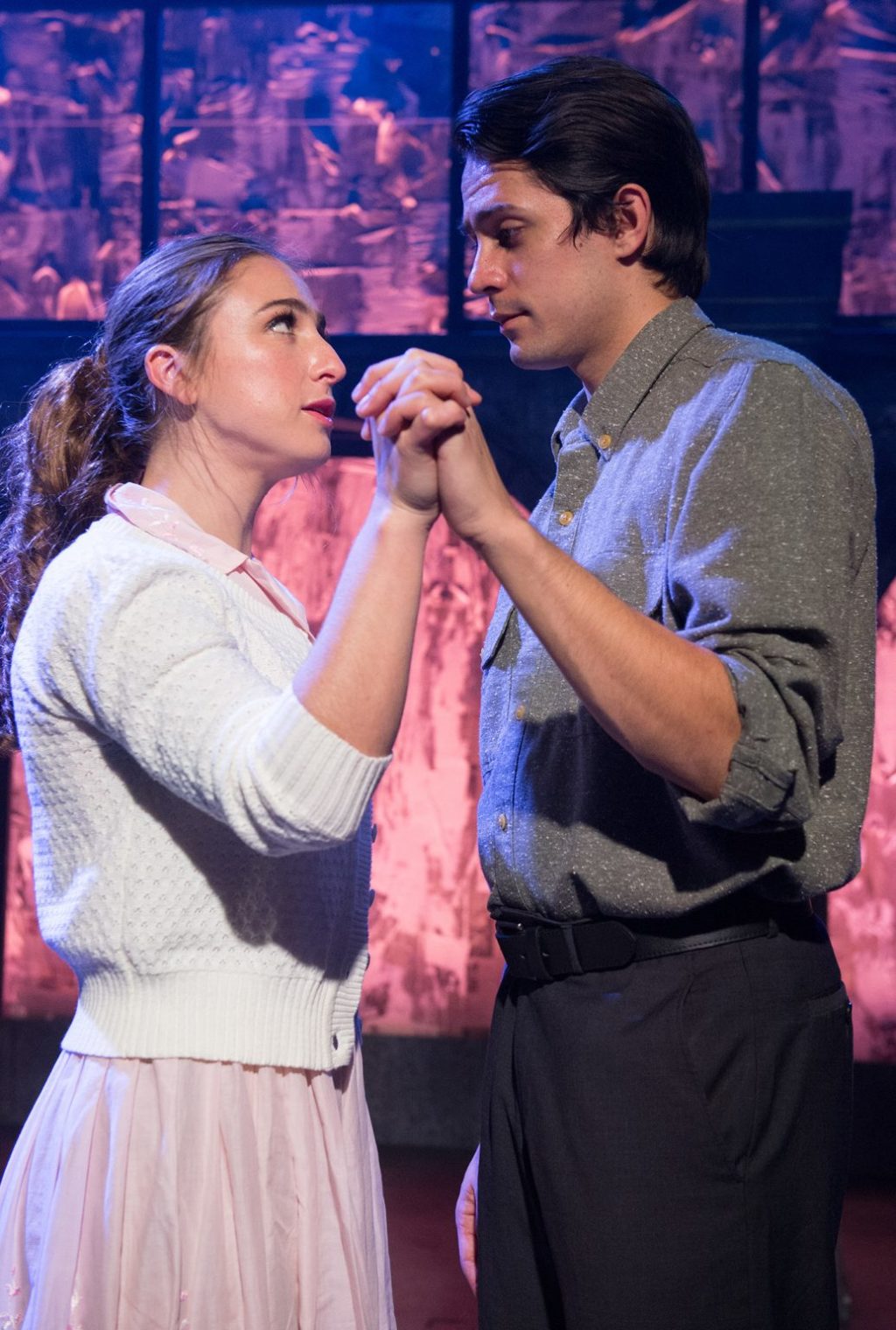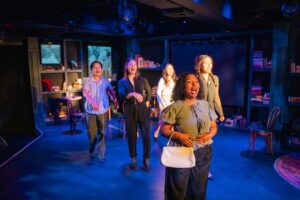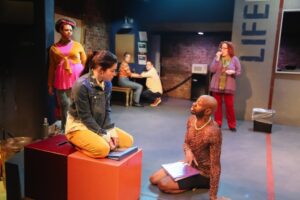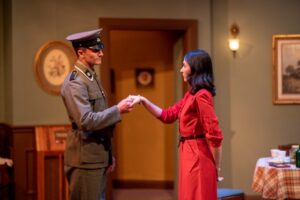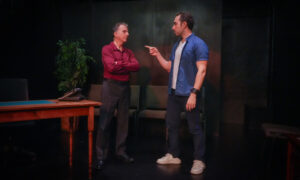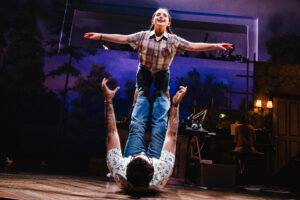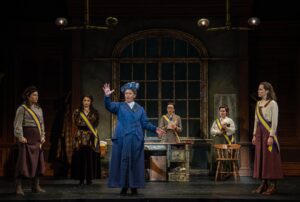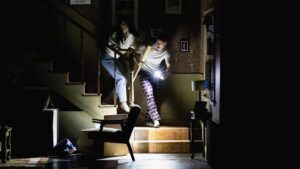How fitting that Singing Revolution: the Musical, onstage at the Broadwater in Hollywood, appears as the world holds its collective breath while Vladimir Putin plays cat and mouse with Ukraine, once part of the U.S.S.R. Based on Ukraine’s “Day of Unity,” that country has learned from the resistance of Estonia, when citizens gained independence after staging a series of peaceful protests to Russian occupation, singing forbidden national songs and displaying their flag at unauthorized gatherings.
The events of Estonia’s peaceful revolution form the basis of Singing Revolution: The Musical, created and directed by Tony Spinosa, with book and lyrics by Spinosa and James Bearhart. Spinosa weaves the real-life story of protest leader, Taavi Tamm (James Everts), through the key events that led to Estonia gaining its independence from Russia in 1991. Taavi’s attraction to Sophia (Bella Hicks), daughter of the officious Soviet Commissar, Nikolai Solokov (Michael Scott Harris), highlights tensions between the two cultures.
Beginning with the opening (and closing) anthem, “Lift It Up,” the songs punctuate events that transpire over the period of unrest. Of all the music, the anthem “This Dream is Alive” captures their passion. The exuberance of the LA-based ensemble perpetuates the youthful spirit found in the Estonian resistance, as demonstrated by their teacher, Leena (Krista Feallock).
Throughout, the Russian characters, notably Leena’s colleague, Viktor (Lucas Alifano), comment on the superiority of Russian culture. Those differences might have seemed more evident if some of the actual songs from the Singing Revolution were contrasted with the Russian marches such as “Boldly Comrades, Keep Step,” and “Soviets.” A duet might have gone far in showing what, other than a border, might tear apart Taavi and Sofia, showing the contrasts of their cultural and political differences.
To the detriment of the show, as the song, “What Could Go Wrong?” might reveal, the through-line for understanding the revolution meanders through time periods we only know because they are flashed back and forth on the backdrop, such that we lose the momentum of events. For some inexplicable reason, the romantic reveal that might have come closer to the start of Act 1, winds up beginning the second act. And reprising the revolution in the concluding ballet, although with lovely choreography (by Tracey Benson), comes so late in the play that it is redundant. Perhaps if the dance numbers were used to punctuate key periods it might have helped,
Because Singing Revolution continues to iron out its kinks, I have every expectation that the positives will outweigh my reservations. Overall, the excellent creative work of scene designer David Goldstein, costumer Alex Jaeger, with lighting and sound by Andrew Schmedkae and Cricket Myers respectively (to name only a few), contributes to the polished performance we see before us.
Singing Revolution: The Musical finishes its run this weekend on February 20th. Three more performances run Friday and Saturday at 8 pm, and Sunday at 3 pm on the main stage at the Broadwater, 1076 Lillian Way, Los Angeles 90038. Proof of vaccination is required. Buy tickets ($40.00) online at www.singingrevolutionthemusical.com.

